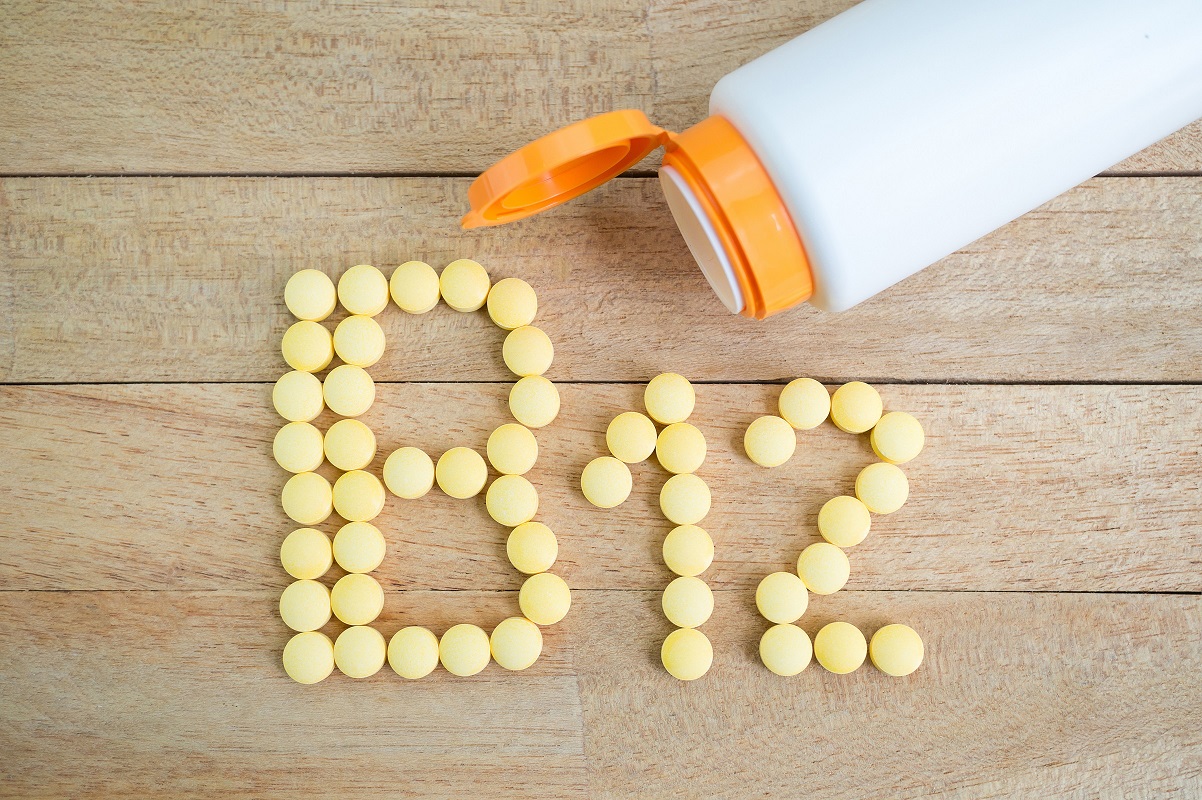
Vitamin B12 and Alzheimer’s
Cobalamin (vitamin B12) plays an essential role in forming red blood cells, regulating cell metabolism, regulating nerve function, and producing DNA. Dairy products, poultry, meat, and fish are all excellent sources of vitamin B12.
According to a new study, vitamin B12 may reduce the risk of memory loss and Alzheimer’s disease. Vitamin B12 deficiency causes impaired cognitive function, memory loss, and tingling and numbness due to poor myelination. Symptoms of Vitamin B12 deficiency include elevated levels of methylmalonic acid and homocysteine. A high homocysteine level may have a connection with Alzheimer’s disease and strokes.
This article explores the link between vitamin B12 & dementia and vitamin B12 dosage for Alzheimer’s.
Contents
Vitamin B12 and Dementia
Vitamin B12 plays a crucial role in lowering levels of an amino acid named homocysteine, high levels of which have been related to chronic diseases like stroke, heart conditions, and Alzheimer’s.
Older people with pernicious anemia often show confusion, slowness, irritability, and apathy as their first symptoms. Another symptom of pernicious anemia is dementia, caused by low vitamin B12 levels. When you have pernicious anemia, your immune system attacks the cells in your stomach that produce intrinsic factors, which prevent your body from absorbing vitamin B12. Those suffering from pernicious anemia have larger and fewer red blood cells in their bone marrow.
In most cases, pernicious anemia does not result from a lack of B12 in the diet. Eggs, dairy products, meat, fish, and poultry are abundant sources of this vitamin, which is stored efficiently in the liver.
A lack of absorption of the vitamin from foods usually causes a B12 deficiency. A B12 injection, if given early enough, can cure the defect and alleviate the symptoms of pernicious anemia. And it is possible to revert confusion and behaviour changes caused by a B12 deficiency. Therefore, increasing your B12 level may improve or restore your memory and ability to think clearly. Besides resolving fatigue and weakness, it can also fix other symptoms.
read here: Vitamins to Prevent Alzheimer’s
Symptoms of Vitamin B12 Deficiency
Age generally causes vitamin B12 levels to decline, so older adults are more likely to be deficient in vitamin B12.
Vitamin deficiencies can cause various health problems. However, abnormally low levels of this vitamin may cause severe cognitive problems. Anemia, gastrointestinal issues, muscle weakness, fatigue, nerve damage and mood disturbances can result from vitamin B-12 deficiency left untreated. Below is a list of vitamin B12 deficiency symptoms:
- Disturbed vision
- Changes in the way you think, feel and behave
- Pale yellow tinge to the skin
- Having trouble remembering things, understanding them, or making judgments (dementia)
- Glossitis (sore tongue)
- Depression
- Constipation
- Trouble keeping balance
Alzheimer’s vs. Vitamin B12 Deficiency
Alzheimer’s symptoms have been linked to vitamin B12 in several studies. A lack of B12 may contribute to Alzheimer’s symptoms and brain atrophy.
In some cases, deficiency of vitamin B12 & dementia has similar symptoms. A deficiency of vitamin B12 may result in confusion and behavioural changes, the same as Alzheimer’s. However, as mentioned above, vitamin B12 deficiency can cause poor balance, weakness, sore tongue, and constipation as well.
As part of your evaluation for Alzheimer’s or another dementia, ask for a blood test to determine your vitamin B12 level in addition to mental status tests and imaging tests.
By increasing your B12 level, you might be able to improve or restore your memory and your ability to think clearly. Additionally, it may alleviate fatigue and weakness that you may be experiencing. Minerals to Prevent Dementia can also be helpful.
Alzheimer’s has no cure at this time. However, if you suffer from dementia caused by vitamin b12 deficiency, your symptoms can notably improve with the right treatment.
Vitamin B12 & Dementia: Treatment
The best way to control low vitamin B12 is to consume a diet rich in B12. You need to include clams, liver, beef, fortified cereals, fish, and other food sources in your diet. However, some people can not absorb enough B12 from food due to some diseases or old age.
Vitamin B12 deficiency can be diagnosed by testing your blood for vitamin B12 levels. Normal results are between 200-900 pg/mL. For seniors, a desirable threshold is between 300 and 350 pg/mL. If necessary, your doctor can prescribe either pills or injections of vitamin B12.

Vitamin B12 Dosage for Alzheimer’s
The ideal dosage of vitamin B12 ranges based on age, sex, and reasons for taking it.
According to a study, 500 mcg of vitamin B12 for eight weeks normalizes B12 levels in 90% of older adults. Some patients may need a higher dosage, up to 1 mg.
Regarding vitamin B12 dosage for Alzheimer’s, even with no vitamin deficiency, administering high-dose supplements of folic acid and vitamins B6 and B12 (1 mg) can be beneficial, according to research.
Please ask your doctor to provide you with the right dosage of vitamin B12 based on your blood test result. Unless your doctor recommends, people with kidney disease should not take high doses of B vitamins.
Final Words
B12 deficiency occurs when your body does not have enough of the vitamin. As a result, various symptoms can develop, including cognitive decline.
A vitamin B12 deficiency can mimic the symptoms of Alzheimer’s disease and other forms of dementia.
Being able to distinguish between the two in your loved ones is essential. In contrast to Alzheimer’s, a B12 deficiency can be treated.
There is no conclusive evidence that vitamin B12 supplements prevent Alzheimer’s disease. The fact remains that good nutrition (including adequate vitamins such as B12) does make a difference in brain health.
B vitamins are needed for the body to function normally, but too much of them can lead to a build-up of toxins in the blood. This can be dangerous for people with kidney disease, as their kidneys are not able to filter these toxins out of the blood effectively. Therefore, people with kidney disease should not take high doses of B vitamins.
I’ve heard that getting vitamins from food is better than taking supplements. Is that true?